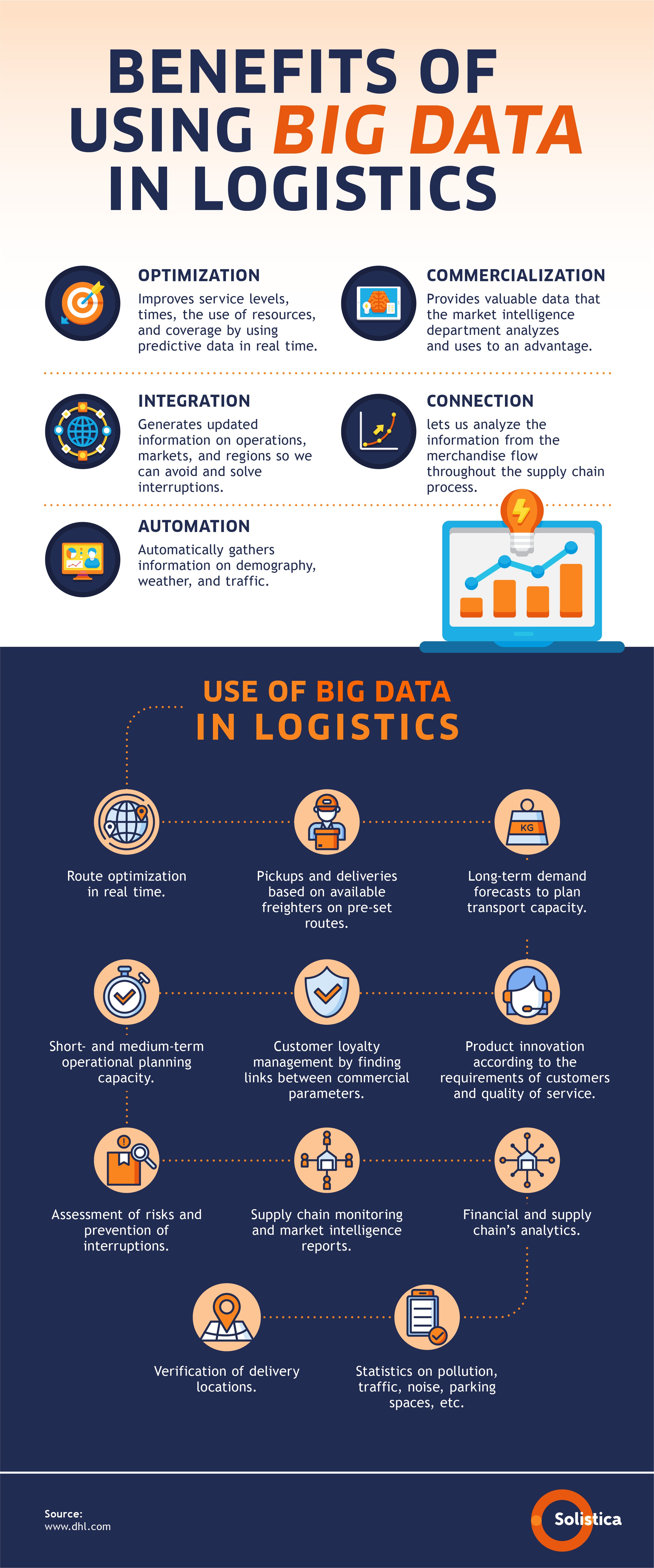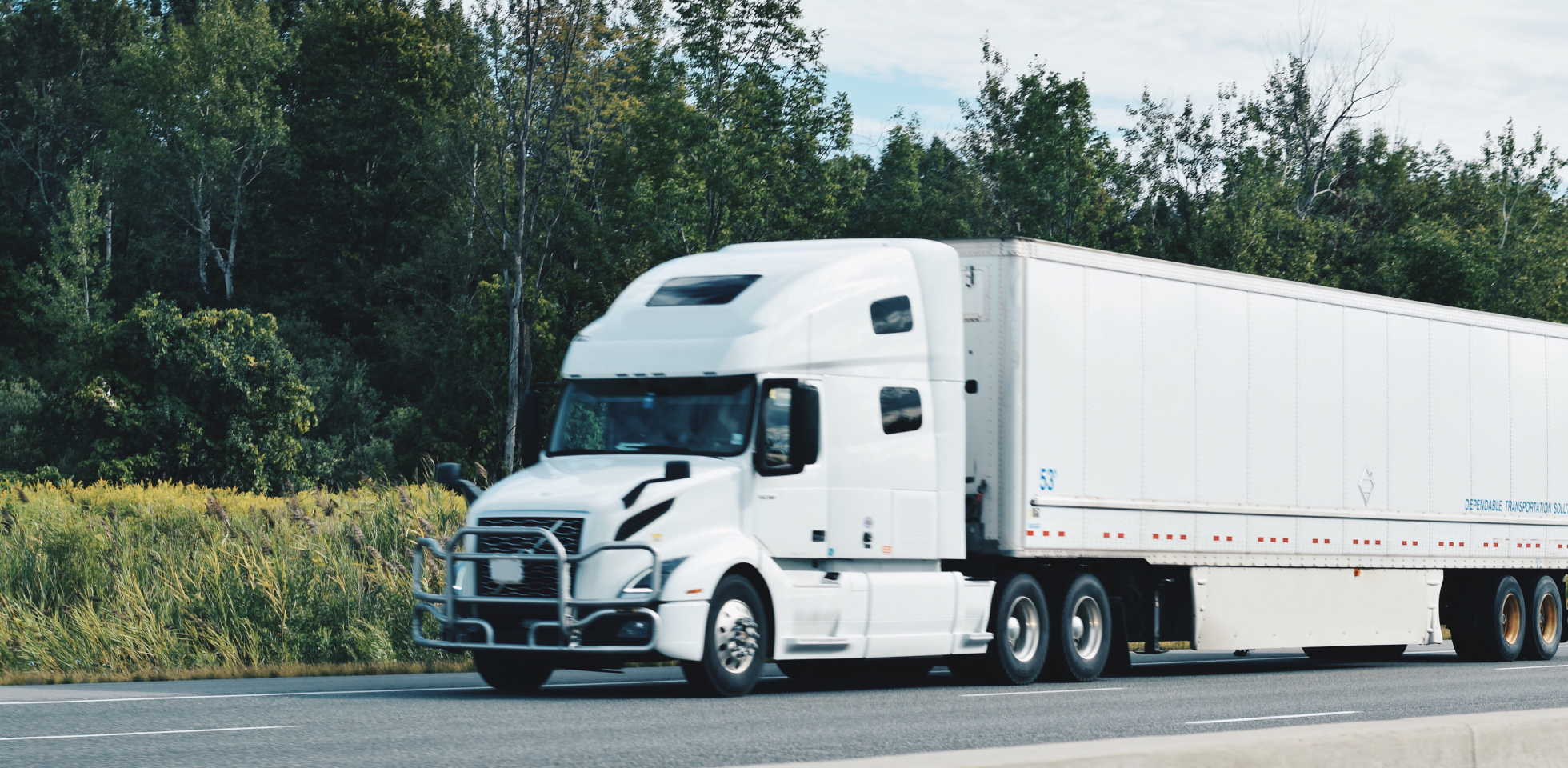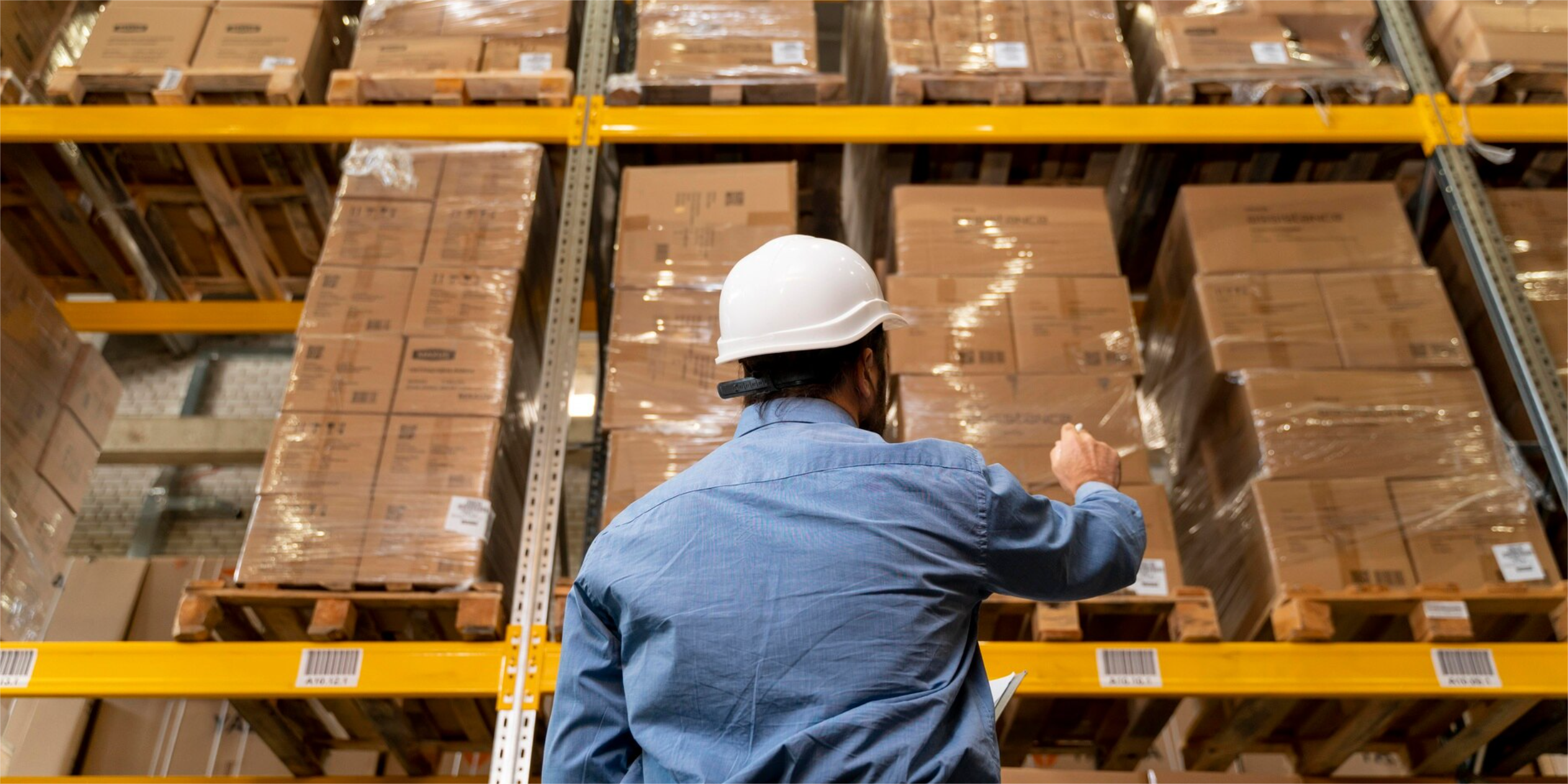Logistics is evolving thanks to Big Data and we are beginning to process data from the supply chain to make better strategic and tactical decisions to improve revenue, increase savings, and improve customer experience.
According to Gartner, the leading IT research and consulting company, Big Data is truthful data in great volume, high speed, and great variety that requires new and profitable processing methods to improve ideas, make decisions, and automate processes.
Just like other areas, logistics carries out corporate intelligence and data mining tasks to make processes more efficient, lower costs, and raise service levels by gathering and analyzing the information generated throughout the supply chain:

More than having just the data, we need to process it and use it to our advantage to truly create market opportunities. Creating or integrating a business intelligence solution for the company is not enough, we also need to choose the right experts to analyze, interpret, and understand what the data means for the logistics and business operations. With infrastructure and specialized software, these experts obtain, classify, describe, analyze, and visualize data from the whole supply chain and use these platforms to design panels that show the information and generate reports.
Applying Big Data to logistics
The use of Big Data in logistics is based on creating, analyzing, and using information to improve the efficiency of the operation, procure a better customer experience, develop new business models, and yield a competitive advantage while considering these benefits:
- Optimization: Big Data improves service, delivery times, the use of resources, and the geographical coverage by using predictive data in real time. The more accurate and timelier the information is, the better results we will have and the more they will be noticed throughout the supply chain.
- Commercialization: The delivery of products creates contact points with customers, which yield valuable information about the consumers and the product. Thanks to Big Data, our market intelligence department can analyze and use this information.
- Integration: Current logistics solutions can be perfectly adapted to most manufacturing and distribution processes, which lets us have updated information on the market, the region, and our customers’ operations. Big Data details this information to avoid, and solve, interruptions.
- Connection: The power of Big Data strengthens the transportation and distribution network by analyzing the information from the merchandise flow, from the reception of orders to their delivery.
- Automation: We use Big Data to automatically gather information from the transportation vehicles along their routes, data such as demography, weather, and traffic.
Likewise, these days 3PLs (specialized logistics companies) produce more data than ever before thanks to the innovative Big Data-based systems they use in their processes. These systems generate relevant information for the companies hiring the logistics and business intelligence services offered by 3PL companies, for example:
- Costs and Efficiency Analysis: Information from past events is used to optimize future operational performance. 3PLs can help identify the inventories, processes, and clients that are profitable and those who are not.
- Predictive Analysis: Patterns and trends are identified, and the historical data of warehouses is analyzed to yield relevant information that helps us forecast what may happen inside and outside the warehouse and/or route. This will let us make long-term decisions and find commercial opportunities before our competitors do.
These specialized logistics companies help clients make better decisions by using formal systems to process and analyze the companies’ current and historical data, such as inventories, orders, clients, indicators, routes, partners, etc.
Now is a good time to make the best use of Big Data’s potential to optimize processes, create new business, and improve customer experience. The new tech tools are enabling this trend and working with a 3PL can expedite and make this process even more efficient.






